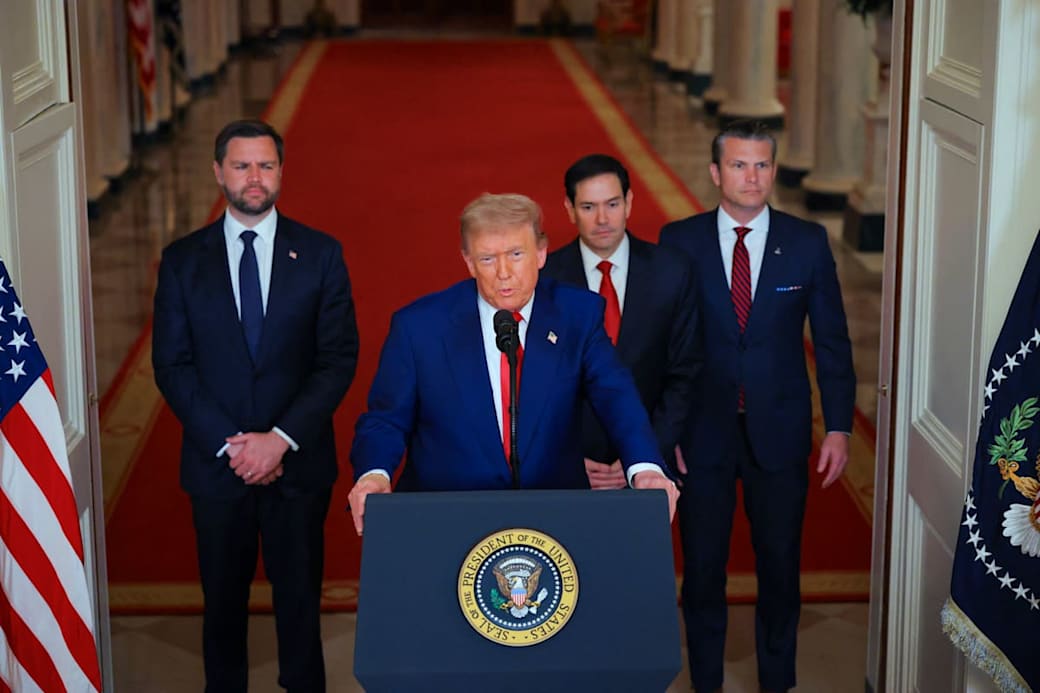US Bombs Iran Nuclear Sites, Drawing ‘Everlasting Consequences’ Warning from Tehran
Iran issued a stark warning today, promising “everlasting consequences” in response to reported U.S. airstrikes on its nuclear facilities, escalating tensions in an already volatile region. The strikes, which U.S. officials claim targeted sites linked to Iran’s nuclear weapons program, have sparked international alarm and raised fears of a broader conflict.
U.S. Justifies Strikes as Defensive Measure
The Pentagon confirmed that U.S. forces conducted precision strikes on multiple Iranian nuclear sites late Saturday, citing intelligence that Iran was accelerating its nuclear weapons development in violation of international agreements. “These actions were necessary to prevent an imminent threat to global security,” said U.S. Defense Secretary Laura Mitchell in a televised address. The U.S. claims the targeted facilities, including Natanz and Fordow, were being used to enrich uranium beyond civilian energy requirements.
No official casualty figures have been released, but Iranian state media reported “significant damage” to infrastructure and an unspecified number of deaths. The Biden administration emphasized that the strikes were calibrated to avoid civilian casualties and were a last resort after diplomatic efforts failed.
Iran Vows Retaliation
Iran’s Supreme Leader, Ayatollah Ali Khamenei, condemned the strikes as “an act of aggression that will not go unanswered.” In a fiery speech broadcast across the nation, he warned that the U.S. would face “severe and everlasting consequences” for violating Iran’s sovereignty. Iranian President Ebrahim Raisi echoed the sentiment, calling the attacks a “declaration of war” and promising a response “at a time and place of our choosing.”
The Iranian Foreign Ministry summoned diplomats from several European nations to protest their perceived complicity, accusing them of failing to restrain U.S. actions. Tehran also announced it would suspend all cooperation with the International Atomic Energy Agency (IAEA), further complicating international monitoring of its nuclear program.
Global Reactions and Concerns
The international community is scrambling to respond to the rapidly deteriorating situation. The United Nations Security Council has scheduled an emergency meeting to address the crisis, with Russia and China expected to condemn the U.S. actions. Russian Foreign Minister Sergey Lavrov called the strikes “a dangerous escalation,” while China urged all parties to exercise restraint.
European leaders expressed concern over the potential for a wider conflict. French President Emmanuel Macron called for immediate de-escalation, warning that “a cycle of retaliation could destabilize the entire Middle East.” The United Kingdom, while acknowledging U.S. concerns about Iran’s nuclear ambitions, urged both sides to return to diplomacy.
Regional Fallout
The strikes have sent shockwaves through the Middle East, with Iran’s allies, including Hezbollah in Lebanon and militia groups in Iraq, vowing to retaliate. Protests erupted in Baghdad and Damascus, with demonstrators burning American flags and chanting anti-U.S. slogans. Israel, long a vocal critic of Iran’s nuclear program, has heightened its military alert status, bracing for potential reprisals.
Oil markets reacted swiftly, with Brent crude prices surging 8% amid fears of disruptions to Middle Eastern oil supplies. Analysts warn that any escalation could choke off key shipping routes, including the Strait of Hormuz, through which a fifth of the world’s oil passes.
Uncertain Path Forward
The U.S. has deployed additional naval assets to the Persian Gulf, signaling its readiness to counter any Iranian retaliation. Meanwhile, Tehran has reportedly mobilized its Revolutionary Guard Corps and conducted air defense drills, raising fears of an imminent counterstrike.
As the world watches anxiously, experts warn that the situation could spiral into a full-scale conflict without urgent diplomatic intervention. “This is a dangerous moment,” said Dr. Fatima al-Zahra, a Middle East analyst at the Cairo Institute for Strategic Studies. “Both sides are locked in a high-stakes game of brinkmanship, and miscalculation could lead to catastrophic consequences.”
The White House has called for an emergency session of NATO allies to discuss next steps, while Iran has appealed to the Non-Aligned Movement for support. With global powers divided and regional tensions at a boiling point, the coming days will be critical in determining whether this crisis can be contained.
